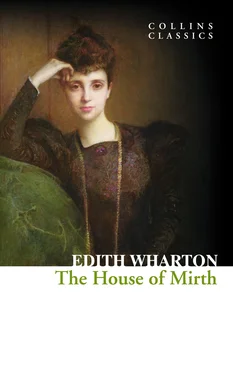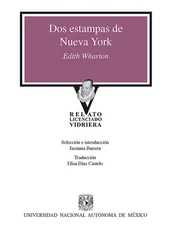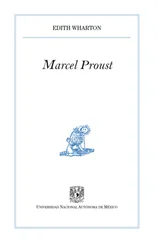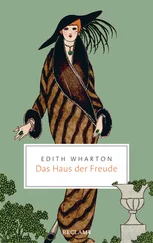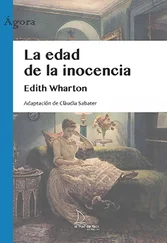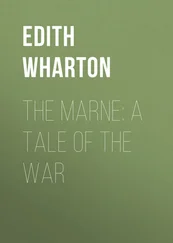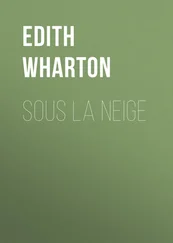She was roused from her musings by the approach of her cousin Jack Stepney who, at Gwen Van Osburgh’s side, was returning across the garden from the tennis court.
The couple in question were engaged in the same kind of romance in which Lily figured, and the latter felt a certain annoyance in contemplating what seemed to her a caricature of her own situation. Miss Van Osburgh was a large girl with flat surfaces and no high lights: Jack Stepney had once said of her that she was as reliable as roast mutton. His own taste was in the line of less solid and more highly-seasoned diet; but hunger makes any fare palatable, and there had been times when Mr. Stepney had been reduced to a crust.
Lily considered with interest the expression of their faces: the girl’s turned toward her companion’s like an empty plate held up to be filled, while the man lounging at her side already betrayed the encroaching boredom which would presently crack the thin veneer of his smile.
“How impatient men are!” Lily reflected. “All Jack has to do to get everything he wants is to keep quiet and let that girl marry him; whereas I have to calculate and contrive, and retreat and advance, as if I were going through an intricate dance, where one misstep would throw me hopelessly out of time.”
As they drew nearer she was whimsically struck by a kind of family likeness between Miss Van Osburgh and Percy Gryce. There was no resemblance of feature. Gryce was handsome in a didactic way—he looked like a clever pupil’s drawing from a plaster-cast—while Gwen’s countenance had no more modelling than a face painted on a toy balloon. But the deeper affinity was unmistakable: the two had the same prejudices and ideals, and the same quality of making other standards non-existent by ignoring them. This attribute was common to most of Lily’s set: they had a force of negation which eliminated everything beyond their own range of perception. Gryce and Miss Van Osburgh were, in short, made for each other by every law of moral and physical correspondence—“Yet they wouldn’t look at each other,” Lily mused, “they never do. Each of them wants a creature of a different race, of Jack’s race and mine, with all sorts of intuitions, sensations and perceptions that they don’t even guess the existence of. And they always get what they want.”
She stood talking with her cousin and Miss Van Osburgh, till a slight cloud on the latter’s brow advised her that even cousinly amenities were subject to suspicion, and Miss Bart, mindful of the necessity of not exciting enmities at this crucial point of her career, dropped aside while the happy couple proceeded toward the tea-table.
Seating herself on the upper step of the terrace, Lily leaned her head against the honeysuckles wreathing the balustrade. The fragrance of the late blossoms seemed an emanation of the tranquil scene, a landscape tutored to the last degree of rural elegance. In the foreground glowed the warm tints of the gardens. Beyond the lawn, with its pyramidal pale-gold maples and velvety firs, sloped pastures dotted with cattle; and through a long glade the river widened like a lake under the silver light of September. Lily did not want to join the circle about the tea-table. They represented the future she had chosen, and she was content with it, but in no haste to anticipate its joys. The certainty that she could marry Percy Gryce when she pleased had lifted a heavy load from her mind, and her money troubles were too recent for their removal not to leave a sense of relief which a less discerning intelligence might have taken for happiness. Her vulgar cares were at an end. She would be able to arrange her life as she pleased, to soar into that empyrean of security where creditors cannot penetrate. She would have smarter gowns than Judy Trenor, and far, far more jewels than Bertha Dorset. She would be free forever from the shifts, the expedients, the humiliations of the relatively poor. Instead of having to flatter, she would be flattered; instead of being grateful, she would receive thanks. There were old scores she could pay off as well as old benefits she could return. And she had no doubts as to the extent of her power. She knew that Mr. Gryce was of the small chary type most inaccessible to impulses and emotions. He had the kind of character in which prudence is a vice, and good advice the most dangerous nourishment. But Lily had known the species before: she was aware that such a guarded nature must find one huge outlet of egoism, and she determined to be to him what his Americana had hitherto been: the one possession in which he took sufficient pride to spend money on it. She knew that this generosity to self is one of the forms of meanness, and she resolved so to identify herself with her husband’s vanity that to gratify her wishes would be to him the most exquisite form of self-indulgence. The system might at first necessitate a resort to some of the very shifts and expedients from which she intended it should free her; but she felt sure that in a short time she would be able to play the game in her own way. How should she have distrusted her powers? Her beauty itself was not the mere ephemeral possession it might have been in the hands of inexperience: her skill in enhancing it, the care she took of it, the use she made of it, seemed to give it a kind of permanence. She felt she could trust it to carry her through to the end.
And the end, on the whole, was worthwhile. Life was not the mockery she had thought it three days ago. There was room for her, after all, in this crowded selfish world of pleasure whence, so short a time since, her poverty had seemed to exclude her. These people whom she had ridiculed and yet envied were glad to make a place for her in the charmed circle about which all her desires revolved. They were not as brutal and self-engrossed as she had fancied—or rather, since it would no longer be necessary to flatter and humour them, that side of their nature became less conspicuous. Society is a revolving body which is apt to be judged according to its place in each man’s heaven; and at present it was turning its illuminated face to Lily.
In the rosy glow it diffused her companions seemed full of amiable qualities. She liked their elegance, their lightness, their lack of emphasis: even the self-assurance which at times was so like obtuseness now seemed the natural sign of social ascendency. They were lords of the only world she cared for, and they were ready to admit her to their ranks and let her lord it with them. Already she felt within her a stealing allegiance to their standards, an acceptance of their limitations, a disbelief in the things they did not believe in, a contemptuous pity for the people who were not able to live as they lived.
The early sunset was slanting across the park. Through the boughs of the long avenue beyond the gardens she caught the flash of wheels, and divined that more visitors were approaching. There was a movement behind her, a scattering of steps and voices: it was evident that the party about the tea-table was breaking up. Presently she heard a tread behind her on the terrace. She supposed that Mr. Gryce had at last found means to escape from his predicament, and she smiled at the significance of his coming to join her instead of beating an instant retreat to the fireside.
She turned to give him the welcome which such gallantry deserved; but her greeting wavered into a blush of wonder, for the man who had approached her was Lawrence Selden.
“You see I came after all,” he said; but before she had time to answer, Mrs. Dorset, breaking away from a lifeless colloquy with her host, had stepped between them with a little gesture of appropriation.
The observance of Sunday at Bellomont was chiefly marked by the punctual appearance of the smart omnibus destined to convey the household to the little church at the gates. Whether any one got into the omnibus or not was a matter of secondary importance, since by standing there it not only bore witness to the orthodox intentions of the family, but made Mrs. Trenor feel, when she finally heard it drive away, that she had somehow vicariously made use of it.
Читать дальше
